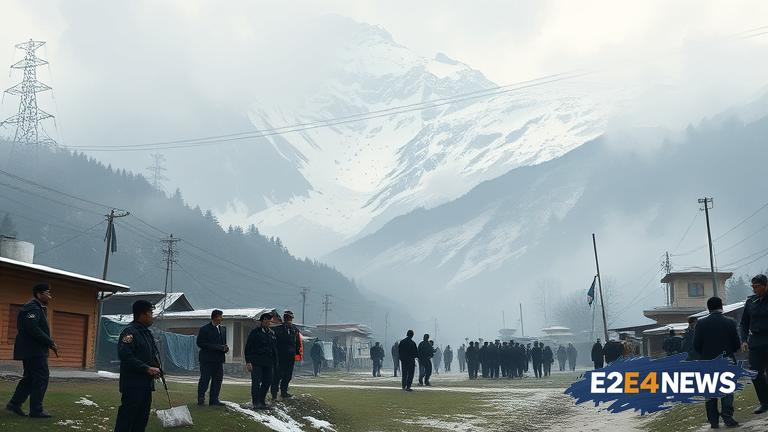The Pahalgam attack, which occurred in the Anantnag district of Jammu and Kashmir, has sent shockwaves across the nation, with many questioning the motives behind the brutal assault. As investigations unfold, it has become increasingly evident that the attack was not an isolated incident, but rather a calculated move in Pakistan’s grand scheme of information warfare. This strategy, designed to destabilize India and undermine its sovereignty, has been a longstanding concern for Indian authorities. By leveraging various media platforms, Pakistan has been disseminating false information and propaganda, aimed at creating confusion and mistrust among the Indian populace. The Pahalgam attack, in this context, can be seen as a deliberate attempt to create a sense of fear and uncertainty, thereby undermining the Indian government’s efforts to maintain peace and stability in the region. Furthermore, the attack has also highlighted the role of social media in perpetuating misinformation and fueling tensions between the two nations. Pakistan’s information warfare strategy is not limited to Jammu and Kashmir, but has far-reaching implications for the entire country. The use of fake news, doctored videos, and manipulated images has become a staple of Pakistan’s propaganda machinery, with the sole intention of sowing discord and chaos in India. The Indian government, however, has been proactive in countering these efforts, with the Ministry of Information and Broadcasting playing a crucial role in debunking false narratives and promoting factual information. Despite these efforts, the threat of information warfare remains a pressing concern, with the potential to escalate into a full-blown crisis if left unchecked. The international community, too, has a significant role to play in mitigating this threat, by calling out Pakistan’s blatant attempts to manipulate public opinion and perpetuate violence. The United States, in particular, has been vocal in its condemnation of Pakistan’s support for terrorist organizations, and has urged the country to take concrete steps to dismantle these networks. The European Union, too, has expressed its concern over the rising tensions between India and Pakistan, and has called for restraint and dialogue. As the situation continues to unfold, it is essential for India to remain vigilant and proactive in countering Pakistan’s information warfare strategy. This can be achieved through a combination of measures, including the promotion of factual information, the debunking of false narratives, and the strengthening of social media regulations. The Indian media, too, has a critical role to play in this regard, by ensuring that the information disseminated is accurate and unbiased. Ultimately, the success of Pakistan’s information warfare strategy will depend on its ability to create a sense of confusion and mistrust among the Indian populace. However, with the Indian government and media working in tandem to promote factual information and counter misinformation, it is unlikely that Pakistan will succeed in its nefarious designs. The Pahalgam attack, in this context, serves as a stark reminder of the threats that India faces, and the need for a coordinated response to counter these challenges. As the investigation into the attack continues, it is essential for Indian authorities to remain alert and proactive, and to take all necessary measures to prevent such incidents in the future. The international community, too, must play its part in condemning Pakistan’s support for terrorism and promoting peace and stability in the region. By working together, it is possible to mitigate the threat of information warfare and promote a more peaceful and stable world. The Pahalgam attack has also raised questions about the role of Pakistan’s intelligence agencies in perpetuating violence and terrorism in the region. The Inter-Services Intelligence (ISI) agency, in particular, has been accused of providing support and funding to terrorist organizations, with the sole intention of destabilizing India. The Indian government has, however, vowed to take strong action against these agencies, and to prevent them from perpetuating violence and terrorism in the region. As the situation continues to unfold, it is essential for India to remain strong and resilient, and to take all necessary measures to protect its sovereignty and stability. The Pahalgam attack, in this context, serves as a stark reminder of the challenges that India faces, and the need for a coordinated response to counter these threats. With the Indian government and media working in tandem to promote factual information and counter misinformation, it is unlikely that Pakistan will succeed in its nefarious designs. The international community, too, must play its part in condemning Pakistan’s support for terrorism and promoting peace and stability in the region.
